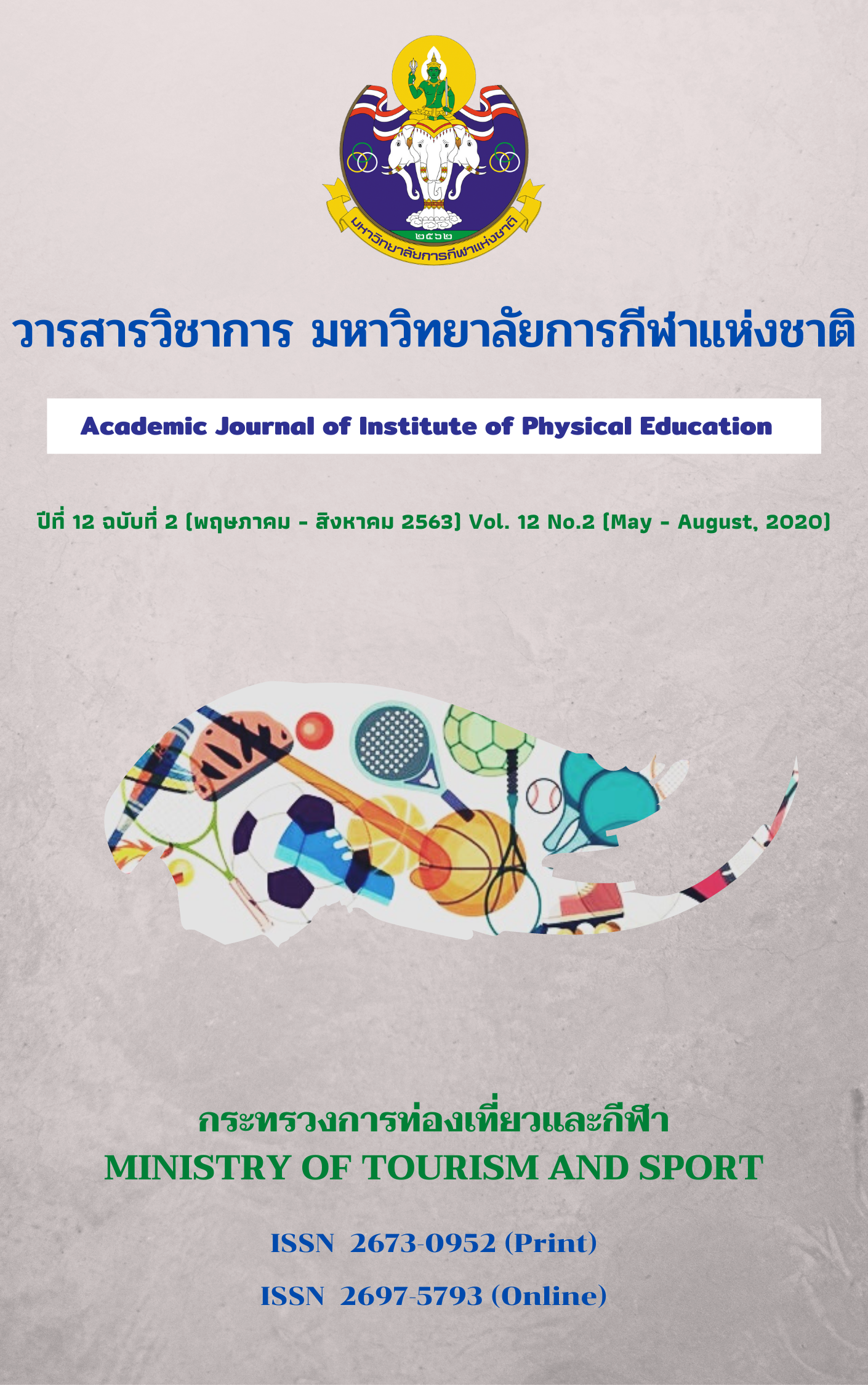AN EVALUATION RESEARCH OF MASTER OF SCIENCE IN BRAIN, MIND AND LEARNING CURRICULUM, FACULTY OF EDUCATION, BURAPHA UNIVERSITY
Main Article Content
Abstract
The purposes of the research were to evaluate the Master of Science in Brain, Mind and Learning Curriculum, Faculty of Education, Burapha University by incorporating the quantitative and qualitative research, in context, input, process and outcomes. The data were collected from the lecturers, and students of Master of Science in Brain, Mind and Learning Curriculum, the graduates, and graduates’ employers. The questionnaire and the interview form were used as the tools of this study. Data analysis was done through percentage, mean, standard deviation and content analysis.
It was found that the respondents were the current students at 39.22 percent, followed by the lecturers or the curriculum committees at 27.45 percent. The research results revealed that the opinions of the lecturers in the curriculum, students of Master of Science in Brain, Mind and Learning Curriculum, graduates, and graduates’ employers toward the curriculum in overall were at a high level. When considered in each aspect it was found that: the objectives of the curriculum were at a highest level while the structure and content of the curriculum, the teaching materials, the materials, venue, learning processes, duration of study, self-development of learners, and the competencies of the learners and graduates were at the high level respectively. In addition, the content analysis revealed that the respondents suggested to improve the curriculum as follows: 1) providing the professional certificate, 2) offering more experiences on teaching, seminar, and experimental research, 3) developing the curriculum into the international curriculum and offering the Ph.D. program, 4) revising the duplicated subject and adding the course, statistics in Research Method, 5) providing more learning materials and instruments of brain, mind and learning measurements, 6) developing brain, mind and learning laboratory, and 7) providing the relaxing classroom.
Article Details
The published article is a copyright of the Academic Journal of Thailand National Sports University. The passage appeared in each article in this academic journal is a perspective of each author which is not related to the journal. Each author is required to be responsible for all components of his/her own article. If there are any mistakes, each author must be responsible for those mistakes on his/her own.
References
Cronbach, L. J. (1963). Course improvement through evaluation. Teachers college record.
Pongthep Jiraro. (2009). Project evaluation (2nd ed.). Chon Buri: Banditeakasan.
Provus, M. M. (1971). Discrepancy evaluation for educational program improvement and assessment Berkeley. California: McCutchat Publishing Corporation.
Sathien Sribunruang. (1999). Project Planning and Assessment. Faculty of Economics Chiang Mai University.
Scriven, M. S. (1967). The methodology of evaluation. In perspectives of curriculum evaluation (AERA: Monograph series on curriculum evaluation, No. 1). Chicago: Rand McNally.
Sombat Thamrong Thanyawong. (2002). Project Management. Bangkok: Sema Dharma.
Somkid Promjui. (1999). Writing research project principles and guidelines. Nonthaburi.
Somwang Phithiyanuwat (2001). Including articles in project evaluation. Chulalongkorn University.
Stake, R. E. (1976). The countenace of educational evaluation. Teachers college record.
Stufflebeam, D. L. & Shinkfied, A. J. (1990). Systematic evaluation. Boston/ Dordrecht /Lancaster: Kluwer-Nighoff Publishing.
Suchart Prasitratasin (1998). Project evaluation: principles and applications. National Institute of Development Administration. Bangkok: Liang Chiang.
Supaporn Phisanabut. (2007). Project planning and management. Bangkok: Wirat Education.
Suwimol Tirakanan. (2002). Project evaluation. (4th ed.). Bangkok: Academic Promotion Center.
Tyler, R. W. (1969). Education evaluation: New roles, New means. Chicago: University of Chicago Press.
Worthen, B. R. & Sanders, J. R. (1973). Educatonal evaluation: Theory and practice. Ohio: Charies and Joanes.
Yaowadee Rangchaikulwibunsri. (2008). Evaluation of Projects, Concepts and Practices. (6th ed.). Bangkok: Chulalongkorn University.


